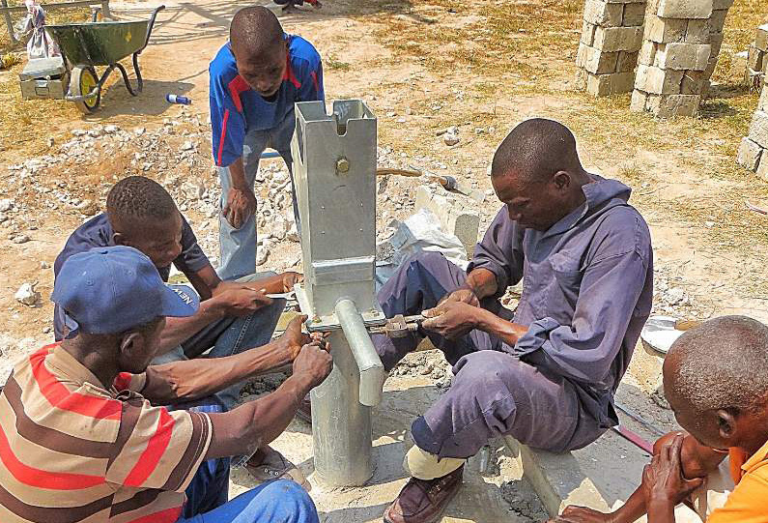Districts draw water-for-all plans
In Malawi, expanding access to water remains a 2D activity—drill or dam.
However, over a quarter of the water points run dry in no time because both politicians and non-governmental organisations think 3D—drill, drill, drill…

Now a consensus is emerging in the water sector that free-for-all drilling and damming could be a waste of resources unless water points are up to standard and located where they are needed.
Last week, policymakers, financiers and activists resolved to ensure every local council has a district sector investment plan (DSIP) by 2023.
The resolution made in Lilongwe seeks to deter anyone, including politicians and NGOs, from implementing water projects outside the blueprint.
“If you don’t have a plan, you cannot achieve your goal. Every district needs a plan for the country to achieve Sustainable Development Goal [SDG six: Ensuring safe water, sanitation and hygiene for all by 2030,” says Dr Max Wengawenga, the director of planning in the Ministry of Water and Sanitation.
Tracking progress
The strategist considers the district plans a vital tool for measuring progress to achieve national Wash ambition.
“The plans come at the right time when water and sanitation is a standalone ministry. This will help us assess whether we are on course or off-track to achieve both local and global goals. If we are not on track, we’ll have to ask ourselves difficult questions and restrategise,” says Wengawenga.
He envisions the decentralised plans ending substandard water and sanitation investments that mostly sidestep local councils.
However, less than half of all the 28 districts have water investment plans to lure potential funders.
“We have been talking about decentralisation since 2008, but only nine out of 28 districts have DSIPs. Some districts haven’t even started the process,” observes water policy analyst James Mambulu.
He worked with Nkhotakota, Dedza, Rumphi, Mangoch and Phalombe district councils to draw their plans with funding from the African Development Bank through the Ministry of Water and Sanitation.
Mambulu expects a nationwide rollout of the district roadmaps to eliminate common inefficiencies fuelled by investors who pre-select areas earmarked for Wash development.
“Development partners should not pre-identify the districts, but work with the line ministry to ensure that investment to accelerate universal access to Wash services goes where it is needed,” he explains.
All districts count
Kate Harawa, from Water for People, says international agencies and NGOs should be encouraged to put in place DSIPs by 2023 to streamline investment in the water sector.
“This should apply to all districts, including Likoma which is often left behind,” she says, adding: “The resolution should be incorporated in the joint sector review so that it doesn’t die at conception stage.”
Water for People has been supporting Chiradzulu district to come up with its DISP since 2016.
According to the strategy, the district, with two in every five water points not functioning, requires K4.8 billion to deliver water for all by the SDGs deadline in 2030.
Stated district water officer: “For us, the plan is the shopping list for activities we need to undertake to achieve global goals and strengthen Wash services in Chiradzulu.
The Wash investment plan indicates that 76 percent of the district’s population of 416 2000 have access to potable water, but only 62 percent of the pumps function.
“Our goal is 100 percent access and 100 percent functionality rate. That’s why we are calling on all investors to respect the DSIP, instead of just sneaking into the district without passing through the council.”
The Ministry of Water, long a roving department in different ministries, has been promoting DSIPs for decades, but came short of making them mandatory.
To Wash director Emma Mbalame, the consultative assessment of Wash services call for sustainable investment in the sector until everyone is reached.
“For us, this learning point is vital for decentralisation because the ministry is no longer planning for the districts from Capital Hill, but only offer technical guidance and regulation,” she explains.
Mbalame challenges pionering districts to vigorously implement their plans so that the have-nots can learn from them.
“We expect access to safe water and sanitation to improve as the few districts implement the activities in their DSIPs. If the plans do not benefit communities, we are wasting time,” she says.
Saving catchments
The plans include catchment protection to lessen water stress caused by climate change pollution and environmental degradation.
“We can keep drilling and damming at the current pace, but where will we, our children and their children get water if we don’t conserve water resources and catchment areas?” asks Harawa.





